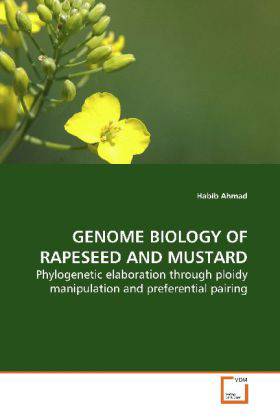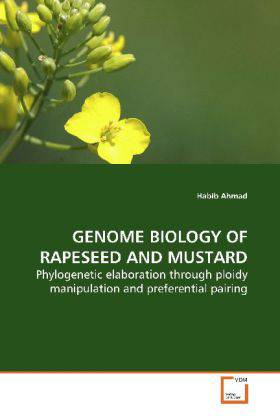
- Afhalen na 1 uur in een winkel met voorraad
- Gratis thuislevering in België vanaf € 30
- Ruim aanbod met 7 miljoen producten
- Afhalen na 1 uur in een winkel met voorraad
- Gratis thuislevering in België vanaf € 30
- Ruim aanbod met 7 miljoen producten
Zoeken
GENOME BIOLOGY OF RAPESEED AND MUSTARD
Phylogenetic elaboration through ploidy manipulation and preferential pairing
Habib Ahmad
Paperback | Engels
€ 48,45
+ 96 punten
Omschrijving
Rapeseed and mustard are multipurpose crops
traditionally cultivated in almost all of the
agroecosystems of the world. All parts of the
rapeseed and mustard plants can be used as food,
fodder, feed, salad, condiment or traditional
medicine etc. Genetic improvement of these crops
has played an important role in livelihood
improvement of people of the developed world.
Mustard seed is nowadays viewed in the prism of
biofuel, which needs proper genetic manipulation.
This book is an outcome of a PhD project of
University of the Punjab, Lahore. It explores genome
relationship of the cultivated oilseed of the genus
Brassica. The tools employed for elucidating genome
biology included the results obtained from
interspecific hybridization, preferential pairing
within and among the induced auto and amphiploid
sporocytes. Depending upon the crossibility
patterns, genomic interactions at amphiploid and
autotetraploid levels, and chromosomal behavior
during diploidization of polyploids; the origin of
rapeseed and mustard is elaborated.
traditionally cultivated in almost all of the
agroecosystems of the world. All parts of the
rapeseed and mustard plants can be used as food,
fodder, feed, salad, condiment or traditional
medicine etc. Genetic improvement of these crops
has played an important role in livelihood
improvement of people of the developed world.
Mustard seed is nowadays viewed in the prism of
biofuel, which needs proper genetic manipulation.
This book is an outcome of a PhD project of
University of the Punjab, Lahore. It explores genome
relationship of the cultivated oilseed of the genus
Brassica. The tools employed for elucidating genome
biology included the results obtained from
interspecific hybridization, preferential pairing
within and among the induced auto and amphiploid
sporocytes. Depending upon the crossibility
patterns, genomic interactions at amphiploid and
autotetraploid levels, and chromosomal behavior
during diploidization of polyploids; the origin of
rapeseed and mustard is elaborated.
Specificaties
Betrokkenen
- Auteur(s):
- Uitgeverij:
Inhoud
- Aantal bladzijden:
- 80
- Taal:
- Engels
Eigenschappen
- Productcode (EAN):
- 9783639148985
- Uitvoering:
- Paperback
- Afmetingen:
- 220

Alleen bij Standaard Boekhandel
+ 96 punten op je klantenkaart van Standaard Boekhandel
Beoordelingen
We publiceren alleen reviews die voldoen aan de voorwaarden voor reviews. Bekijk onze voorwaarden voor reviews.








